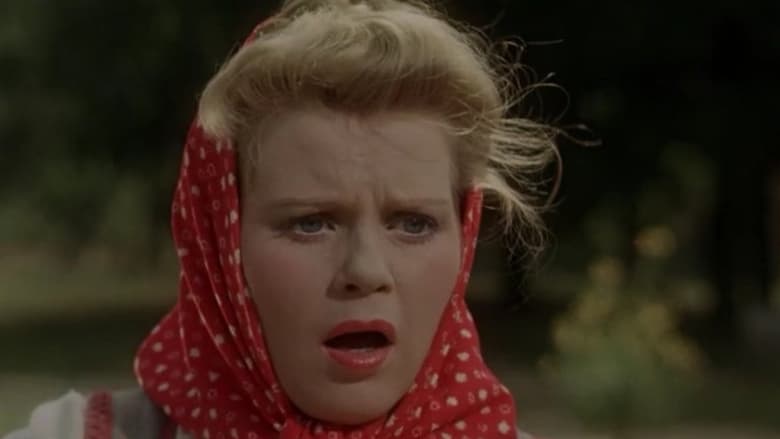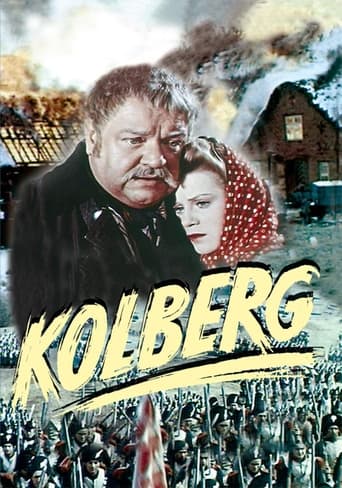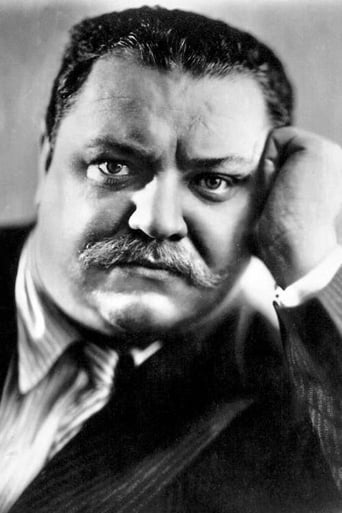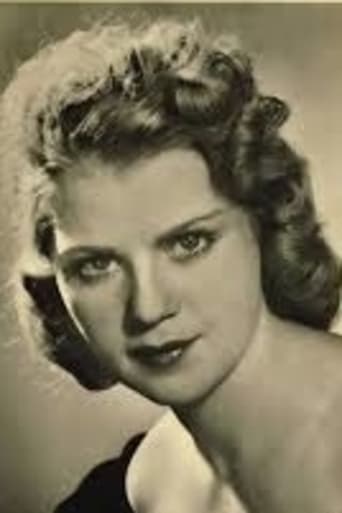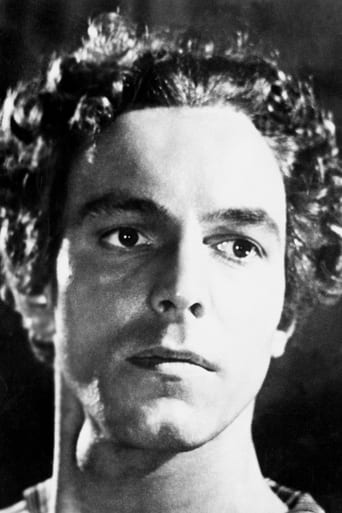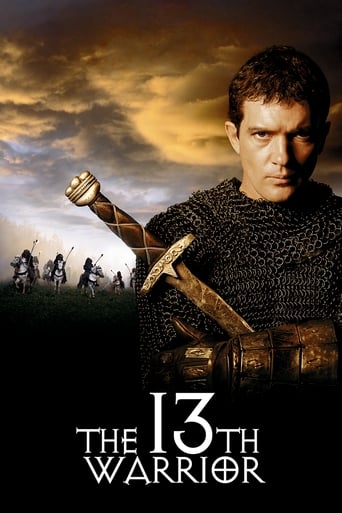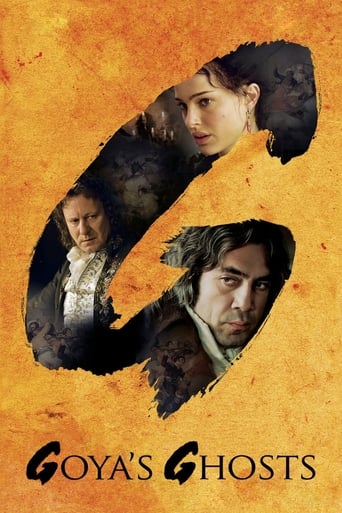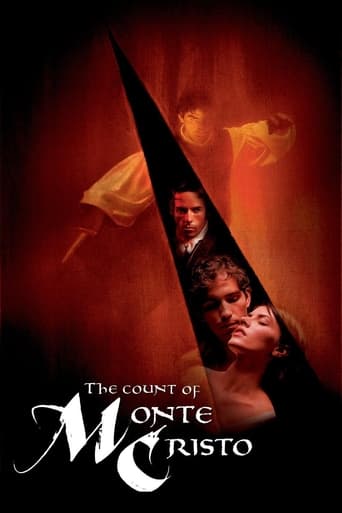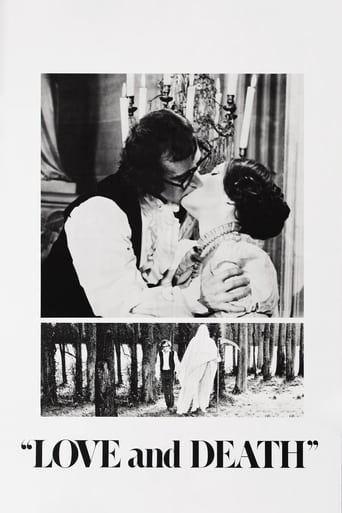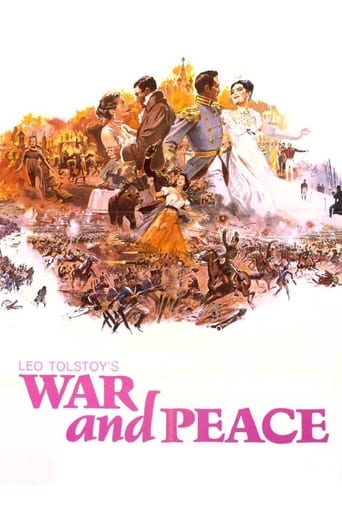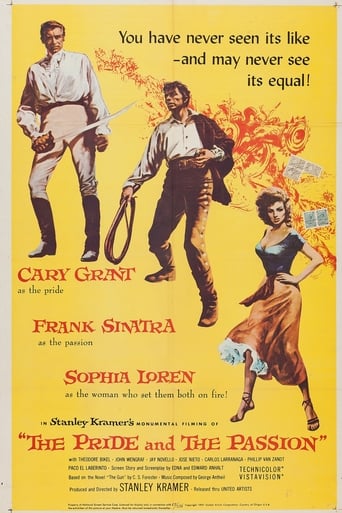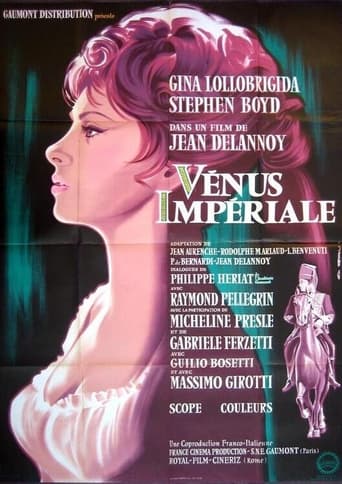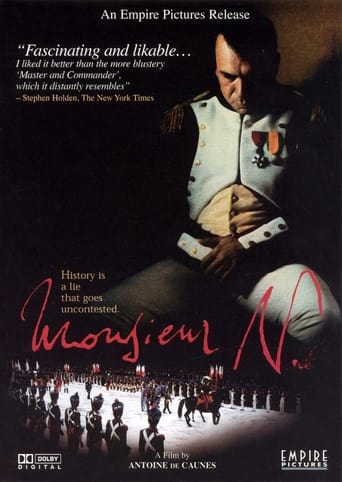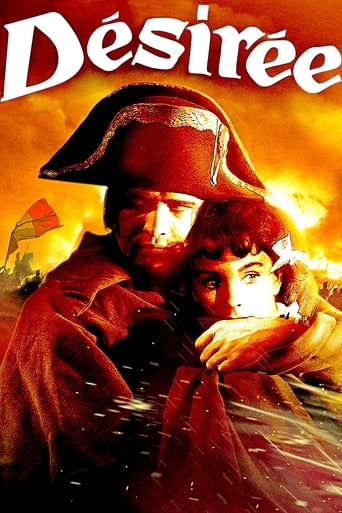Kolberg (1945)
During Napoleon's victorious campaign in Germany, the city of Kolberg gets isolated from the retreating Prussian forces. The population of Kolberg refuses to capitulate and organizes the resistance against the French army, which immediately submits the city to massive bombardments.
Watch Trailer
Free Trial Channels
Cast


Similar titles
Reviews
Very well executed
The greatest movie ever made..!
Boring, long, and too preachy.
Am I Missing Something?
This was one of the most remarkable films ever made, and surprisingly stands the test of time extremely well. In many ways it is a much better film than Münchausen. Its problem is that it is irrevocably tied to the period it was made, and the reasons for making it. On the one hand it is a timeless tale of the need for ordinary people to stand up and resist tyranny and aggression; on the other it encourages Germans to support their Great Tyranny at the height of the Final Solution. On the practical level, one is continually astound by the cast of thousands, both civil and military assembled for the grand set pieces, and the fact that they were all correctly clothed for the time. Goebbels' ability to divert vast amounts of scarce resources into the making of the film, was truly amazing. One is also surprised by the quality of the acting, which apart from Gneisenau, was generally restrained and authentic. Some of the set pieces in which the citizens discuss whether to surrender to the French, and thus protect their livelihoods, or resist the invader and at least maintain their honour, if nothing else, were well argued and believably presented. A particular plus point in the film, is that the Germans speak German, and the French French. (The version we saw came from Arté so had French sub-titles.) The story itself may well distort history. In 1813 the citizens of Breslau demand the right to form a citizens' militia to fight the French. The King of Prussia refuses: war is for soldiers, not civilians. Gneisenau points out that (a) there are a lot of civilians outside, and (b) if it hadn't been for civilians, Kolberg would have fallen to the French in 1807. (Kolberg is a town in Pomerania, now part of Poland, which shows how the future mocks the past). The time then switches to 1807 and a grand scene in which the Emperor of Austria renounces the title of Holy Roman Emperor, showing himself to be morally degenerate. In Potsdam, the King of Prussia, fearful of the French, flees to Konigsberg. In Kolberg we see much peasant merrymaking until the military commander objects to the Mayor's interference in military matters, and says he has orders to surrender the town to the French, who now lay siege. The film's heroine, torn in love between two officers, is smuggled out and sent to Konigsberg to press the King to send a new commander. After a moving scene with the Queen, Gneisenau is sent and takes charge of the defences. About the only light moment, is when he orders trenches to be dug across roads, and the Mayor orders them to be filled in. Gneisenau insists they be dug out again. However, the Mayor explains they will hamper movement in town. The message is clear, the military give orders, but they must be sensible, and advice must be sought and considered. To protect the south of the town, a canal is dug and the low lying ground flooded in one of the film's great spectaculars. A huge battle ensues as the French try to raze the town, and we are treated to a spectacle of what it must have been like in Lubeck and Rostock when the RAF bombed these old Hanseatic towns. In the end the resistance of the town and political developments elsewhere, lead to the French halting the bombardment. The people have won, but they paid a heavy price. Back in 1813, the King agrees to the formation of a citizen militia.In retrospect it is bizarrely amusing that at the time Kolberg was filmed, France was our glorious (more or less) ally and Germany the seriously bad guy. However, at the time it was set, France in the form of Napoleon was the Big Bogeyman (and children were scared to sleep by the threat of his coming, and Prussia was on our side (and helped us at the Battle of Waterloo, even if they did arrive late). Russia too was an ally of Prussia against the French.
During the waning years of WWII, it was obvious to just about everyone that ultimately the Germans would lose the war. However, the Minister of Propaganda, Josef Goebbels insisted that a rousing German epic about war MUST be created in order to inspire their people in the defense of the nation. And so, while the country was being incinerated from the air and troops were being slaughtered by the 100s of 1000s on the Eastern Front, HUGE resources were rather inexplicably being diverted to the creation of "Kolberg". 10s of 1000s of soldiers were cast as extras and the great power of the sleeping German movie industry was mustered. And seeing that it was a full-color film with all this money being thrown into it, it's not surprising that this is a great film--though also one most would probably want to forget simply because of who made it and why it was created in the first place.The film is set during the Napoleonic Wars--back around 1807. Town after Prussian town have surrendered to the oncoming French juggernaut. Yet, inexplicably, the town of Kolberg isn't ready to welcome the invaders. Despite a very weak commander of the Prussian army in the region, the Mayor isn't about to surrender and he's encouraging his people to fight to the death, as by slowing down the enemy, ultimate victory may result. But, he must contend with the wimpy commander and send a rather ordinary lady on a mission to have the King replace the commander and support the defense of the city. What follows are some exceptional battle scenes and the only ones which I have seen which are better are from the insanely large Russian version of "War and Peace" (a film you just have to see at least once in your life).Overall, the film is very rousing and inspiring. It's obvious that the purpose of the film is to get the German people to be very willing to lay down their lives as well as convince them that this is not a sacrifice in vain (which is was). As a result, the film probably contributed to the unnecessary deaths of thousands of people--when there was no possible way to stop the inevitable. Plus, unlike the Prussians during the time of Napoleon, they were NOT fighting for what was right. Sad...but amazingly effective...provided the local movie houses had not been blown up so the folks could see it in the first place! By the way, the scene where the peasant girl meets the queen was exceptionally well done--even brilliant. See this and you'll understand what I mean.
KOLBERG was an attempt by the Nazi Party to make a GONE WITH THE WIND sized epic to boost morale. There were some small problems. First, many soldier, supplies, etc that were to be used in the real war were diverted to the shooting location of this big period piece and used there. The film was finished circa April 1945, when the Nazi party was reduced to a few frightened fanatics huddled in bunkers, awaiting surrender or certain death. Third, except for a few well staged moments, this is a boring, overly sentimental epic. As on criitc put it, "It's music score is so sweet, it makes THE SOUND OF MUSIC sound like punk rock." A film worth having in your video collection.
This film, the pride and joy of Goebbel's propaganda machine, was filmed during the last year of the war. Lavish financial and materièl resources were expended to make the film and it premiered just ahead of the advancing allied armies. Reportedly, Goebbels and company diverted precious rolling stock from a hard pressed Reich to bring in loads of salt to use as "snow" in one wintry scene. Munitions factories were ordered to produce the dummy ammunition expended in the fighting scenes. And Wehrmacht troops were drawn from the battle fronts to serve as extras. For the Nazi hierarchy propaganda had BECOME reality.

